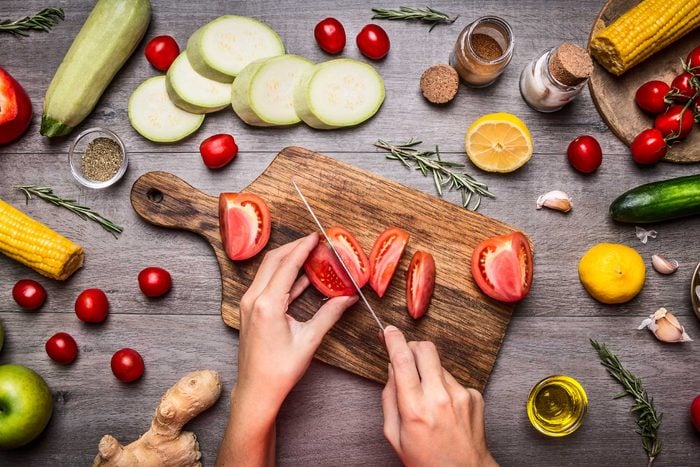
First: A vegan lifestyle entails eating an entirely plant-based diet
Three percent of people in the United States are vegan, according to a 2018 Gallup poll. People choose to go vegan for many different reasons, whether it’s because they advocate for ethical treatment of animals or because they’re hoping to reap the health benefits of a vegan diet. It’s no secret that boosting your fruit and vegetable intake has major health perks, but that’s only if you do it the right way. Experts say a healthy vegan diet comes down to balance, conscientious eating, and food smarts. “Make sure it’s a well-balanced diet that has a wide variety of foods,” says Vandana Sheth, RDN, a registered dietitian and spokesperson for the Academy of Nutrition and Dietetics. “Anything you eat can be unhealthy depending on how you make it.” (Plant-based vs. vegan: here’s how these diets differ.)

You may lose weight
Vegans may feel more satiated after eating meals because they consume more nutrient-dense foods packed with fiber, antioxidants, vitamins, and minerals. A 2016 review published in the Journal of General Internal Medicine analyzed 12 different studies comparing people assigned to a vegetarian diet to people on a non-vegetarian diet. The results showed that the vegetarians lost an average of 4.4 pounds more than the non-vegetarians. “They’re putting more thought into their meals,” Sheth says. “They’re more mindful, so that whole attitude is going to promote weight loss.” These are some of the healthiest vegetables you can eat.

You might make more frequent trips to the bathroom
High-fiber, plant-based foods clean out your intestines. Insoluble fiber holds more water, which can bulk up waste and help bowel movements pass more smoothly. Translation: You’ll notice bigger, softer stools. “Size matters, as they say,” says Liz Applegate, PhD, director of sports nutrition at University of California, Davis.
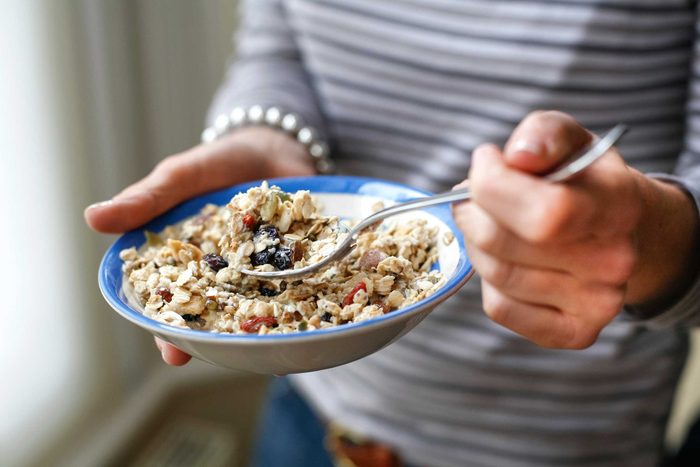
You may feel hungry more often
A growling stomach may mean that you’re overdoing the veggies and cutting out essential nutrients like protein in beans or whole grains. One cup of raw vegetables contains 25 to 50 calories (like broccoli), so a bulky, 300-calorie vegan meal might fill you up initially. But keep in mind that it doesn’t necessarily mean your body is getting the adequate nutrition it needs to sustain your energy throughout the day. “It’s important to pay attention to the mix of foods in your diet,” Sheth says. “If you have a bowl of oatmeal, add some nuts, chia seeds, cinnamon, and blueberries. Right there you took that bowl of cereal and made it much more nutrient-dense.” Here are other surprising reasons you might be hungry.
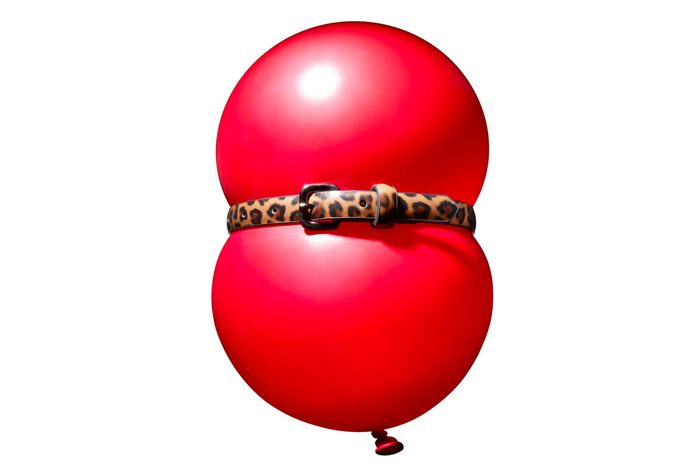
You might feel gassy or bloated at first
When you increase your intake of beans, Brussels sprouts, cabbage, asparagus, and other vegetables, you may get a bloated tummy or develop a stinky case of gas, especially if you’re eating loads of raw vegetables, which are difficult for your digestive system to break down at first. “Any time you increase fiber, do so gradually,” says Michelle Dwyer, a health coach and nutrition consultant based in Oakland, California. “So you give your body time to catch up.” Dwyer suggests lightly steaming your vegetables, chewing food well, and eating blended soups or fermented foods like kimchi and sauerkraut to break down the food better and help your body absorb it easily. Check out these other essential items to add to a vegan shopping list.
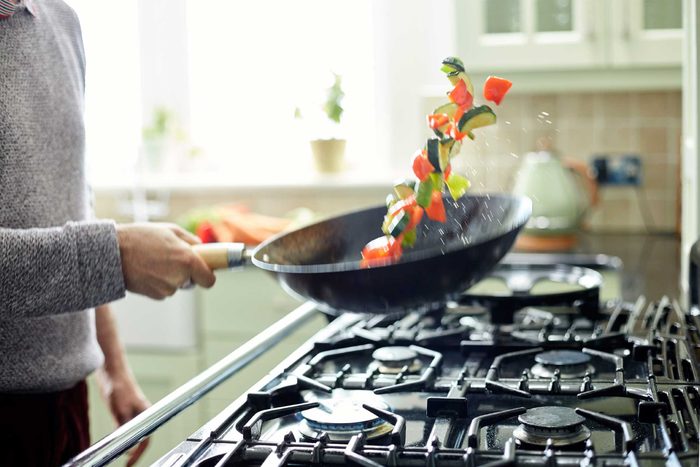
You’ll change the bacteria in your gut
Your gut microbiome is made up of different bacterial populations that live inside your digestive tract. Researchers are now investigating how these unique gut bacteria can influence your health and risk of disease. Some studies show that your diet can give your intestines a microbiome makeover quite rapidly, one of the benefits of a vegan diet. A small 2014 study published in Nature compared plant-based diets and animal-based diets; researchers discovered an increase in B. wadsworthia, a bacterial microbe linked to inflammatory bowel disease, inside the stomachs of the people who ate animal foods. People who ate meat also had more fecal bile acid in their guts, which can cause gastrointestinal infections. “This shows that our microbiome is elastic and very responsive to stimuli,” says Carolyn Slupsky, PhD, a nutrition professor at the University of California, Davis. Here are other great, non-dairy options for boosting “good” gut bacteria.

You may feel a pep in your step
Processed fats and sugars deplete your energy, but when you start eating foods rich in healthy fats, vitamins, and minerals, your energy levels will get a boost—and your stress levels could go down. In a 2014 Nutritional Neuroscience study, researchers asked 620 people to take a survey about their diets, mental health, and lifestyle. The scientists then split the participants into vegan, vegetarian, and omnivore groups based on their diet responses and then analyzed the data. Vegans reported less anxiety and stress than omnivores, adding on even more reasons to the list of benefits of a vegan diet. One of the other benefits of a vegan diet is that it may also prevent blood sugar spikes, Sheth says. “[Vegans] are eating lighter foods,” she says. “Their bodies are not stuck with all this fat and extra sugar.” (Check out the best vegan gift baskets you can buy on Amazon.)
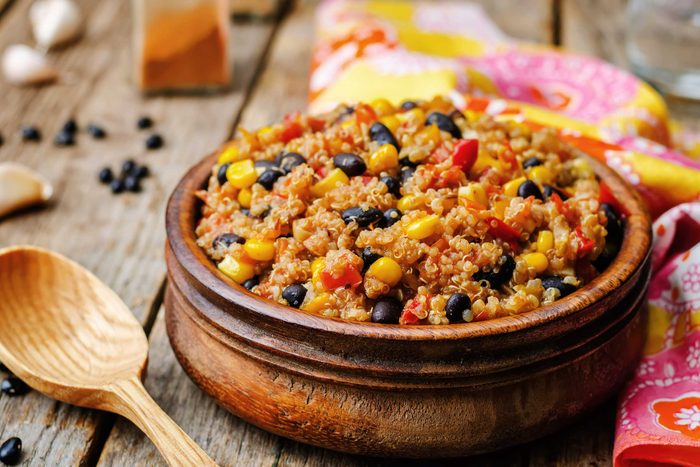
On the other hand, you may also gain weight
Don’t let the word “vegan” on a snack or box of frozen “meat” fool you—vegan is not synonymous with “healthy” or “low in calories.” Vegan bars and processed proteins are loaded with additives, processed sugars, fat, sodium, and calories. For example, a cup of vegan chili has 120 more calories and 25 more grams of carbohydrates than a small bowl of chili from Wendy’s. “Just because the word ‘vegan’ is on a product doesn’t mean it’s calorie-free,” Applegate says. Processed foods are still processed foods, vegan or not. Here are some things to know if you’re going on a vegan weight-loss diet.
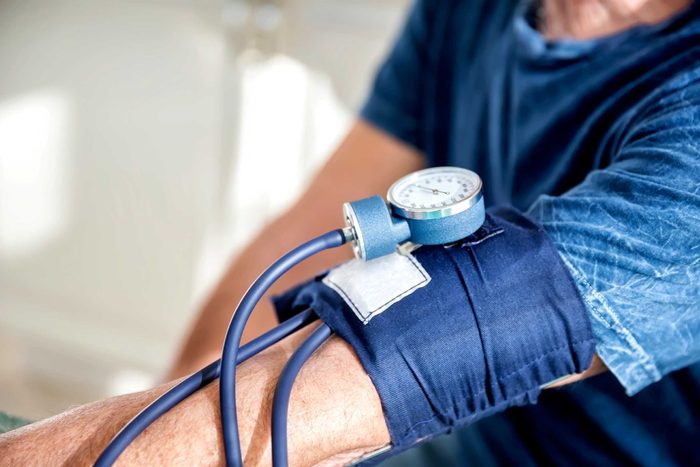
You may lower your risk of disease
One of the biggest benefits of a vegan diet is that it can reduce your risk of cancer, diabetes, and heart disease, thanks to phytonutrients, a substance found in fruits and vegetables that provides various kinds of health boosts. “You’ve got that low calorie intake with that high nutritional quality,” Dwyer says. “That’s where you’re really optimizing your energy and digestion, and giving your body what it needs to be healthy.” Scientists conducted a literature review of 27 different studies that looked at people following plant-based diets and found that people who ate vegetarian or vegan diets combined with nuts, soy, and/or fiber lowered their cholesterol by up to 35 percent. Another literature review discovered that vegans reduced their total cancer risk by about 15 percent and vegetarians decreased their heart disease risk by 25 percent compared to meat eaters.
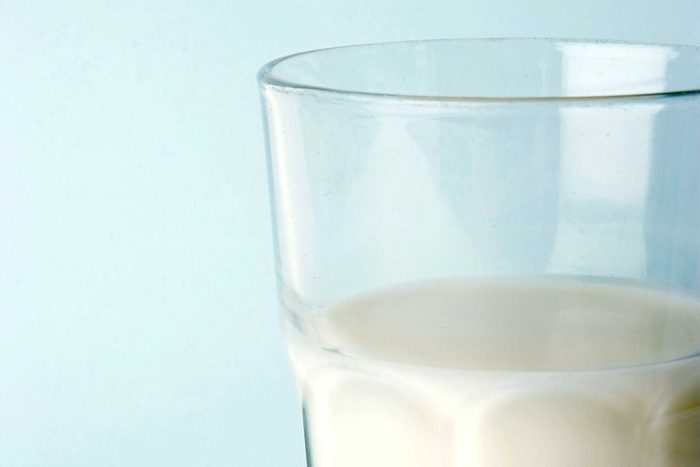
You may feel fatigued
Fatigue could be an immediate sign of a vitamin B12 deficiency. Humans do not naturally produce vitamin B12, so we must rely on animal products for our daily dose. Cows and sheep have bacteria in their stomachs to make B12 for them. What’s more, people are less able to absorb vitamin B12 from foods as they get older. Experts recommend taking a vitamin B12 supplement, sprinkling a little nutritional yeast on popcorn, or consuming B12-fortified foods like soy milk and vegan breakfast cereal. Watch out for these other sneaky signs of a vitamin deficiency.
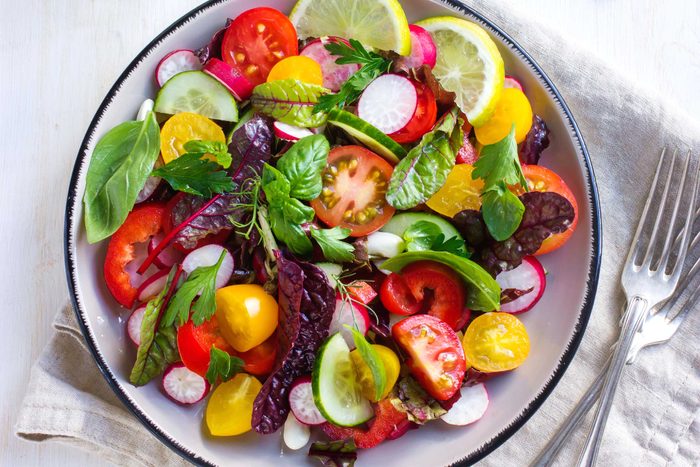
You may need to make an effort to prevent nutrient deficiencies
In addition to vitamin B12, iron, zinc, calcium, and vitamin D are some key nutrients in which your body may be deficient because some vitamins and minerals from plants are absorbed less well by the body than versions found in animal products. Also, experts say overdoing kale and spinach or beans and seeds that contain phytic acid can compromise the absorption of these essential nutrients. “Any food in excess, out of moderation, out of balance is not advised,” Applegate says. “You want variety. That’s what it’s all about.” For example, nutritionists say vitamin C-rich foods help the body absorb three to six times as much iron from plants because it puts iron into a more bioavailable form. Adding salsa to a rice and beans dish or red bell peppers and citrus dressing to a leafy green salad are all ways you can help your body absorb iron better. As for vitamin D, experts recommend a daily dose of ten minutes in the sun without sunscreen. But if you are worried about skin cancer, drinking vitamin D-fortified soy milk or eating irradiated mushrooms works just as well. Pay attention to these nutrients it’s easy to miss on a vegetarian or vegan diet.
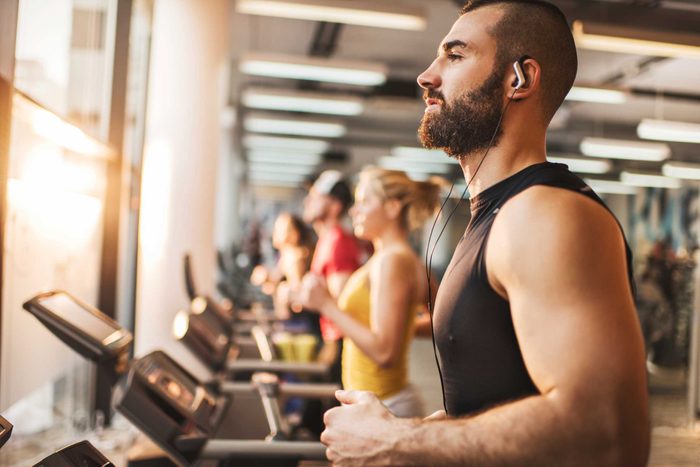
You may see a decline in your athletic performance
Studies show that there isn’t truly any difference in physical performance between a vegan and a meat eater. But as with any diet, if you’re not giving your body the nutrients it needs, it could impact your abilities. Iron and zinc deficiencies can have a major impact on your daily exercise regime. Iron carries oxygen throughout your body, which gives you endurance and stamina. Zinc helps your body heal from exercise wounds. Without these essential minerals in your diet, you may see a decline in your athleticism. (Learn about vegan clothing for exercise.)
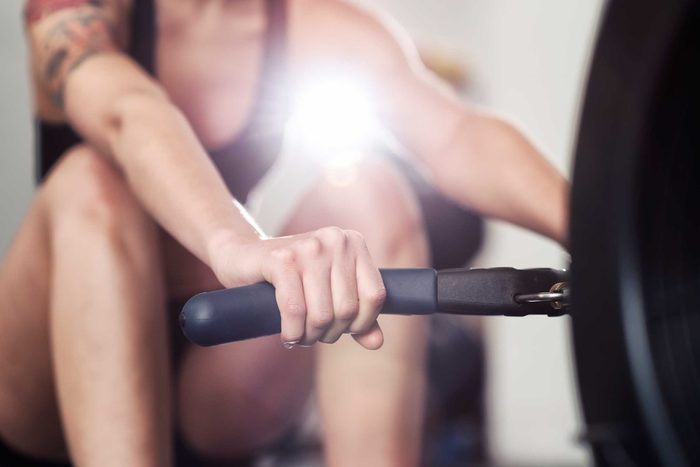
Your muscles may need more time to recover from a workout
Applegate says she’s seen some vegan athletes take the meat off their plate but not supplement it with a healthy alternative that meets a recommendation of 20 to 30 grams of protein per meal, especially in older people. “New research shows that for recovery from exercise we actually need more protein than a younger version of ourselves,” Applegate says. Your muscles break down during exercise and protein synthesis builds them back up post-workout. Fortunately, both animal and plant protein get the job done, except plant-based protein takes longer. Experts recommend blending up some post-workout protein smoothies to help your body absorb the protein faster. The good news is that a high-carb vegan diet is excellent for muscle recovery because it helps build back up your own storage of glycogen. Add more of the best vegan protein sources to your diet.
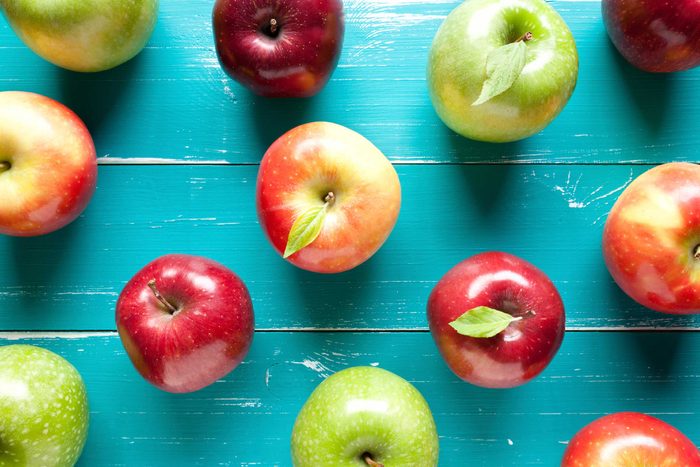
You might have better bone health
There’s conflicting data that debates whether one of the benefits of a vegan diet is stronger bones. But according to a 2016 literature review in Switzerland, vegans may be protected from a decrease in bone mineral density, thanks to the low acid load in fruits and vegetables, which decreases bone resorption, a process that breaks down bones and releases minerals from the bone into the blood. Only a small number of studies looked at this low acid content, so future research is needed. Even if you’re not quite ready to give up all animal products, learn things that happen to your body when you stop eating red meat.